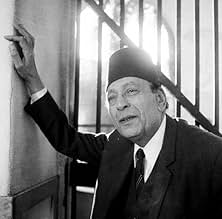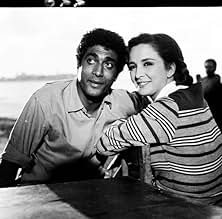The movie starts with black-and-white stock footage of Rommel's desert advance towards Alexandria in World War II. Mohsen Mohieddin plays Yehia, Egyptian director Youssef Chahine's teenage alter ego, avidly daydreaming Hollywood musical comedies to block out family drama and wartime trauma. His extended family, always fighting for the most trivial causes, hangs on to a facade of elegance while living on top of a cabaret. The young protagonist performs Shakespeare at his English school and yearns working in Hollywood. He stages mock musical revues and arranges impudent skit shows. Meanwhile, in Alexandria, the approaching Nazis are viewed as a welcome change in oppressor, Egyptian nationalists hatch a silly plot to capture Churchill and British soldiers become the main article of contraband, trafficked among rebels for assassination potential. Mohieddin's rich uncle buys a young Brit (Gerry Sundquist) and falls in love with him. A Muslim Communist (Ahmed Zaki) and his Jewish girlfriend (famous Egyptian actress Naglaa Fathi) are more successful in bridging the various frantic tensions, even as her aged father prophesizes an increased American military presence in the region after the war to "protect the oil."
Examining identity both personal and cultural, the filmmaker directs the final laugh at himself, as his eager alter-ego finally crosses the Atlantic to be greeted by a winking Statue of Liberty. Youssef Chahine's love for his hometown of Alexandria is as fervidly distinctive as Fellini's love for Rome. Comparisons to the oeuvre of the Alexandria- based Greek poet Constantin Cavafis are also profitable. Among the movie's weak spots: it's too long, and with its many plots, it is sometimes sloppy. Also Chahine had obviously a very low budget at his disposal, which shows. Perfidia, the Latin classic, is heard several times on the movie as a sort of leitmotif.






























